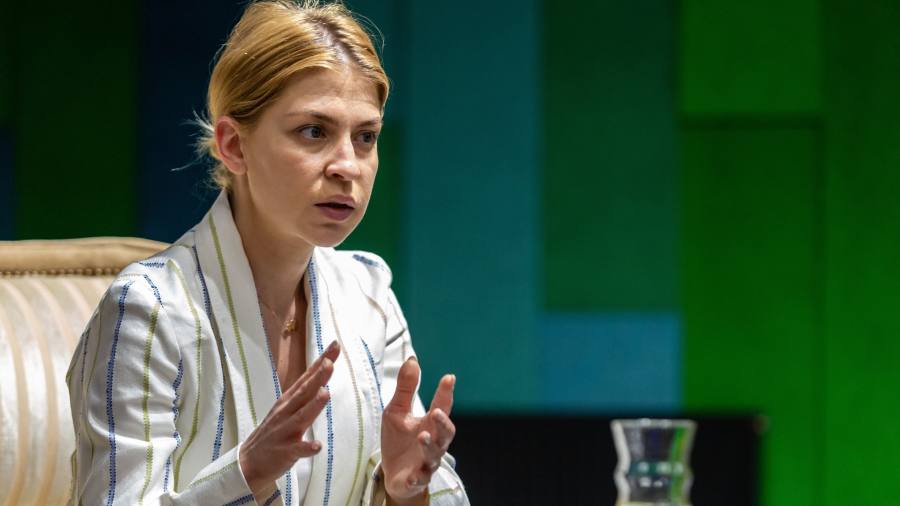Receive free Ukrainian politics updates
We’ll send you a myFT Daily Digest email rounding up the latest Ukrainian politics news every morning.
Ukraine is prepared to make changes to its laws on minority rights to unlock EU agreement later this year on opening accession talks, its deputy prime minister has said.
Olga Stefanishyna, who is in charge of Ukraine’s drive to join the EU, told the Financial Times Kyiv was prepared to make “additional amendments” to rules on secondary education in minority languages, including Hungarian, as long as a balance was struck with teaching in Ukrainian.
The issue has become the biggest potential obstacle to the start of formal EU membership negotiations with Kyiv. The bloc’s leaders are due to decide in December whether to begin talks, but Hungary’s prime minister Viktor Orbán has repeatedly threatened to veto the process over the minority rights issue, accusing Kyiv of “Hungarophobia”.
Ukraine has dozens of minorities — Zakarpattia province in western Ukraine is home to an estimated 80,000 ethnic Hungarians — and protecting their rights is one of seven reform benchmarks demanded by the EU before it opens membership talks.
Ukrainian officials will this week begin bilateral talks with Hungary and Romania to try to iron out an agreement on the balance of Ukrainian and minority language education in secondary schools.
“We will amend the legislation on national minorities and we can put additional amendments [into law] if needed, but we need to have the [bilateral] negotiations first,” Stefanishyna said.
However, the deputy prime minister said ethnic minority Ukrainians needed to be taught enough Ukrainian so they could pursue further education or job opportunities outside minority areas. She said the current rules that had introduced more mandatory Ukrainian language teaching were working well: “A balance has been found and it is working. So we really need to assess that.”
Officials in Kyiv and Brussels fear Orban, an ally of Moscow, has no interest in finding a solution to the education issue and will use it as an excuse to block the start of accession talks in December.
The Venice Commission, an advisory body on constitutional law attached to the Council of Europe, has also said Ukraine should protect the language rights of Russian speakers. Stefanishyna has previously expressed confidence the EU would not hold up the start of talks over that issue.
The European Commission said Ukraine had fully met two of the seven benchmarks for starting talks — on media freedom and judicial reform. It will assess progress on the other five — minority rights, anti-corruption reforms, anti money laundering rules, anti-oligarch laws and constitutional court reform — later this autumn.
On Tuesday, President Volodymyr Zelenskyy demanded parliament reintroduce a public mandatory asset register covering some 300,000 officials. The register, created in 2016, is regarded by anti-corruption groups and the IMF as an essential safeguard against illicitly acquired wealth. It was suspended last year on security grounds after Russia’s full-scale invasion.
Civil society groups had demanded parliament reinstate mandatory declarations, with exceptions for serving military.
MPs acquiesced earlier this month but voted to keep the register secret for another year, triggering a storm of criticism. A petition demanding an open register gained tens of thousands of signatures within a few hours.
Zelenskyy on Tuesday vetoed the law and urged parliament to swiftly adopt an amended version.
“Declarations must be fully revealed. Right now,” he said on Telegram.
Stefanishyna told the FT before Zelenskyy’s move that an immediate resumption of open asset declaration would “leave no room for speculation, and no room for undermining our commitment” to fight corruption.
This story has been updated to include Zelenskyy’s veto of the asset declaration law
Read the full article here




